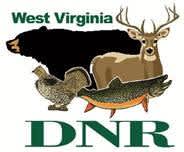West Virginia’s Spring Gobbler Season Opens April 22, 2013
OutdoorHub 04.18.13

The West Virginia Division of Natural Resources encourages all spring gobbler hunters to get their turkey calls out and tuned up in preparation for the upcoming season opener. The four-week season begins Monday, April 22, and closes on Saturday, May 18, 2013. Hunters may kill only one bearded turkey per day and are allowed two per season.
“Unlike 2012, when spring green-up came early, this year winter is still hanging on and very few trees have leaves out yet,” according to Curtis I. Taylor, chief of the Division of Natural Resources Wildlife Resources Section. “Therefore, the late appearance of spring will likely increase the distance hunters can hear a gobbler. However, the peak of gobbling occurs near the end of April or early May as hens go to incubate their clutches, so hunters shouldn’t be surprised if they hear more birds at that time. Gobblers will also be more willing to come to calls once hens have gone to incubate their clutches so hunters should continue hunting as the season progresses.
“More than 50 percent of the harvest occurs during the first week of the season, so hopefully it won’t be snowing like it did last year,” Taylor said. “While the snow has little effect on the gobblers, it definitely makes it more difficult on the hunters, which was one reason the harvest was down in 2012. Assuming that the weather cooperates and the approximately 65,000 spring gobbler hunters participate, we believe the harvest should improve from last year’s 8,303 to a more typical 9,000 birds.”
DNR Needs Spring Gobbler Survey Cooperators!
Wildlife Resources Section personnel began a statewide survey of spring gobbler hunters in 1983. This survey has hunters record items of interest by day, like the number of gobblers heard, called in, missed and harvested. DNR also is interested in other animals seen and your most memorable experience. These data are then tabulated and compared against previous years in a report that is mailed back to all cooperators the next year. These data are invaluable to helping biologists manage the wildlife resources in the state. Please contact Tammie Thompson at 304-637-0245 or download a form at www.wvdnr.gov.
Youth Spring Gobbler Season April 20
A special one-day, youth spring gobbler hunt will be held on Saturday, April 20. Youth participating in this hunt must be at least eight years of age and no more than 18 years old on the day of the season.
Youth hunters 15–17 years of age are able to participate in this hunt but must comply with all applicable licensing requirements. Hunters under 15 years of age must be accompanied by a licensed adult at least 21 years of age, who cannot carry a gun or bow and must remain close enough to render advice and assistance. The only legal firearm that can be used by a youth hunter is a shotgun with shot sizes no larger than #4 or smaller than #7 ½.
The bag limit is one bearded turkey that will count toward the hunter’s annual bag limit. For more information please see page 33 of the 2012–2013 Hunting and Trapping Regulations Summary.
Last year, youth hunters harvested 432 gobblers, which was up 10 percent from 2011, when 392 were taken during this season. The special youth one-day hunt provides an ideal opportunity for seasoned hunters to introduce young people to the joys of spring gobbler hunting. In addition to having a great day afield, these adult mentors pass along their hunting knowledge, create great memories and keep the fine hunting tradition alive for the next generation of hunters.
Cash Rewards for Poaching Information
Taylor also reminds citizens that the National Wild Turkey Federation (NWTF) will pay $200 cash rewards for information leading to the arrest and conviction of persons who illegally kill or possess a wild turkey. “This cooperative effort between the NWTF and the DNR is designed to curtail illegal activities associated with the state’s wild turkey resource,” said Taylor.
The NWTF also pays a reward of $100 for information that leads to the arrest and conviction of persons attempting to kill wild turkeys through the use of bait or who willfully destroy the nest or eggs of wild turkey.
“The public is urged to contact their local natural resources police officer or their local DNR district office if they see someone illegally killing a turkey, know of a person possessing an illegally killed turkey, or know of a person attempting to kill wild turkeys through the use of bait,” Taylor said. “The informant’s identity will remain confidential. By reporting poaching incidents, the public can make a significant contribution to West Virginia’s wild turkey management program.”

